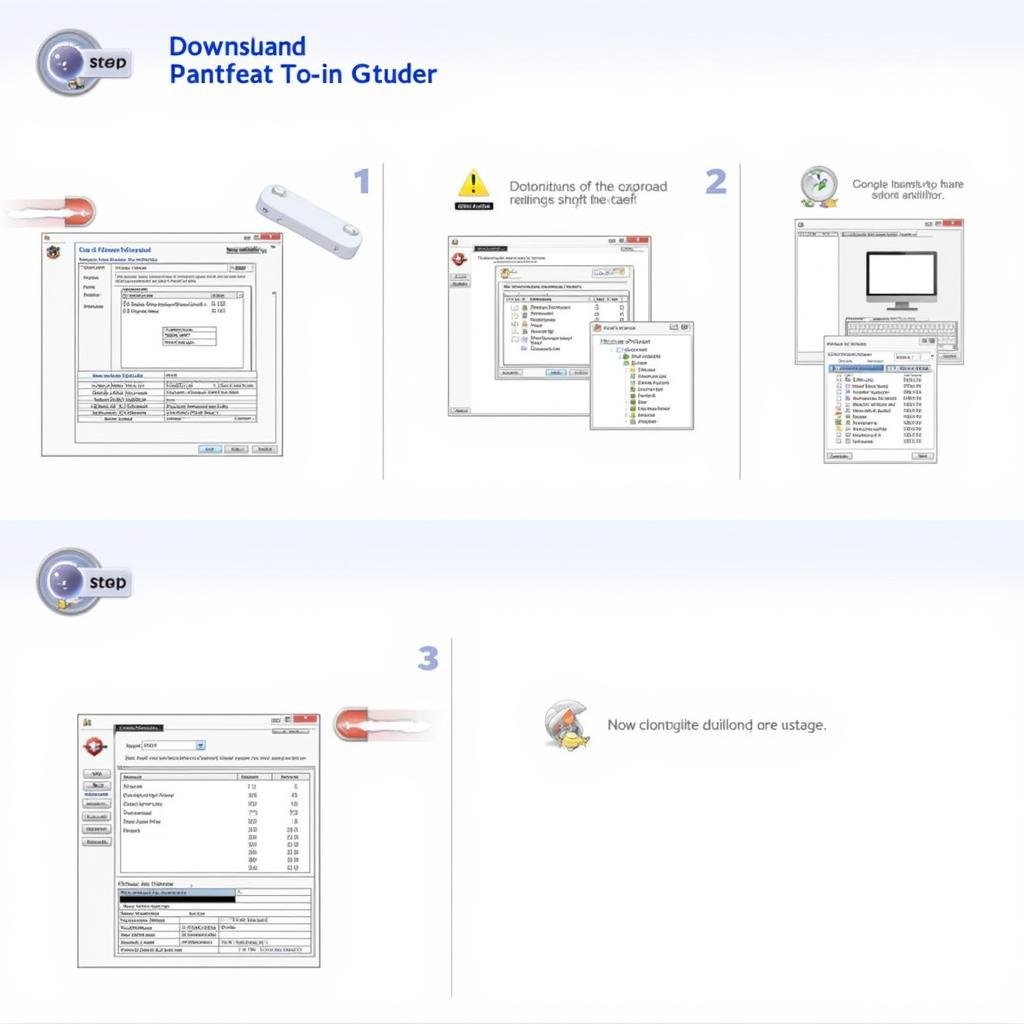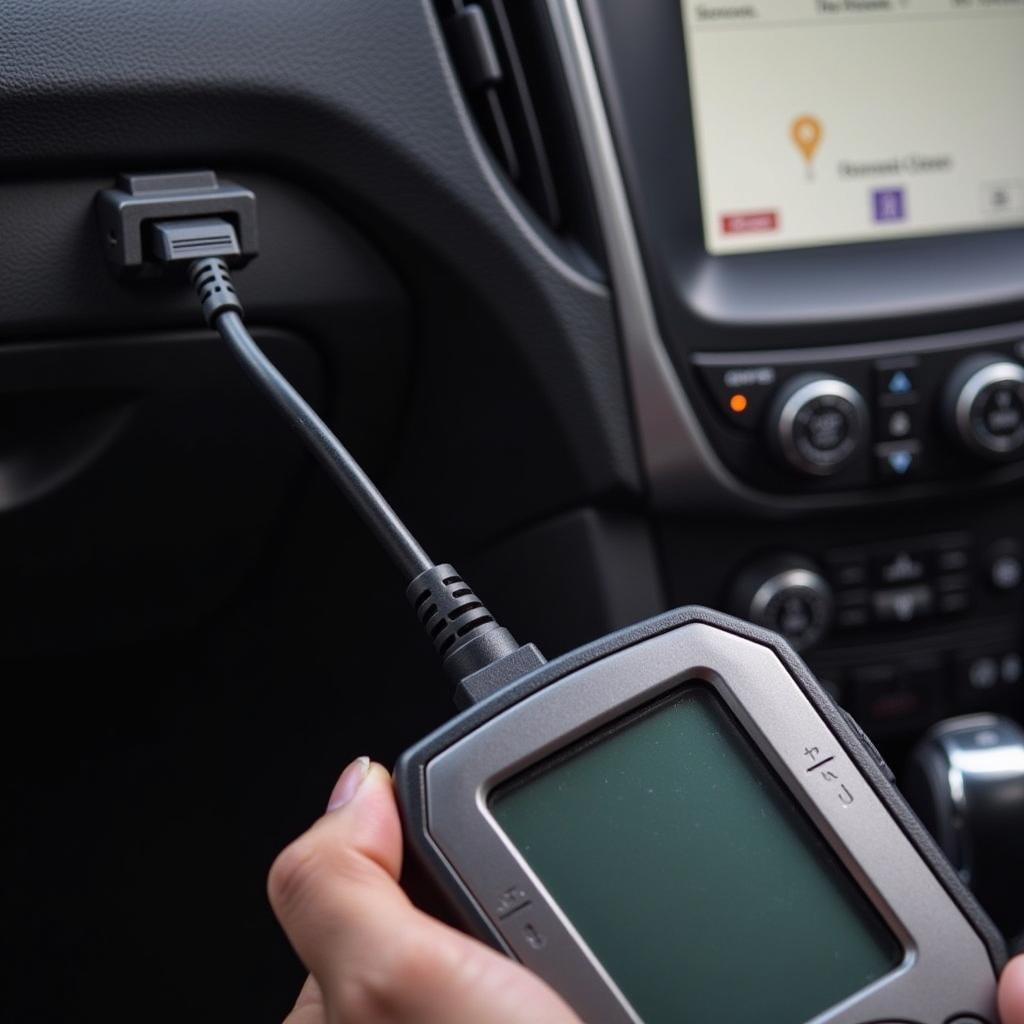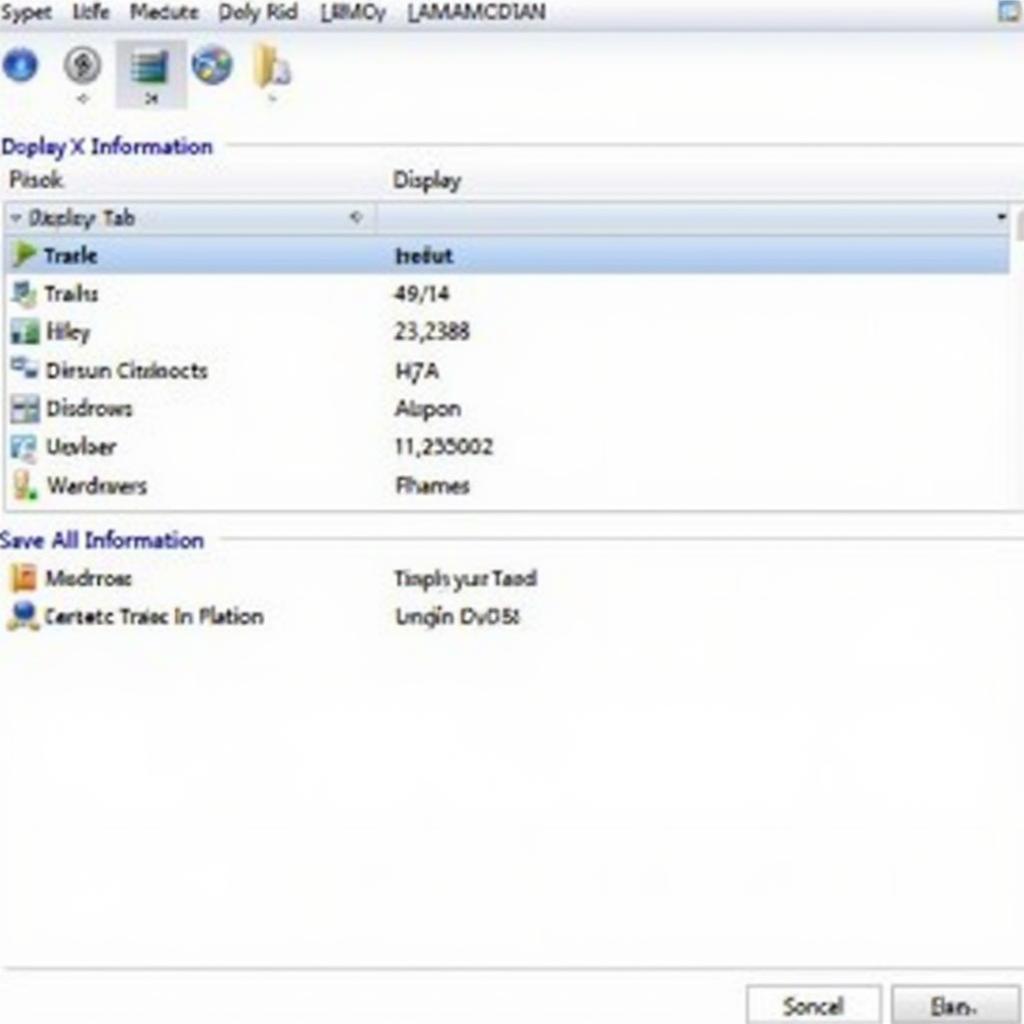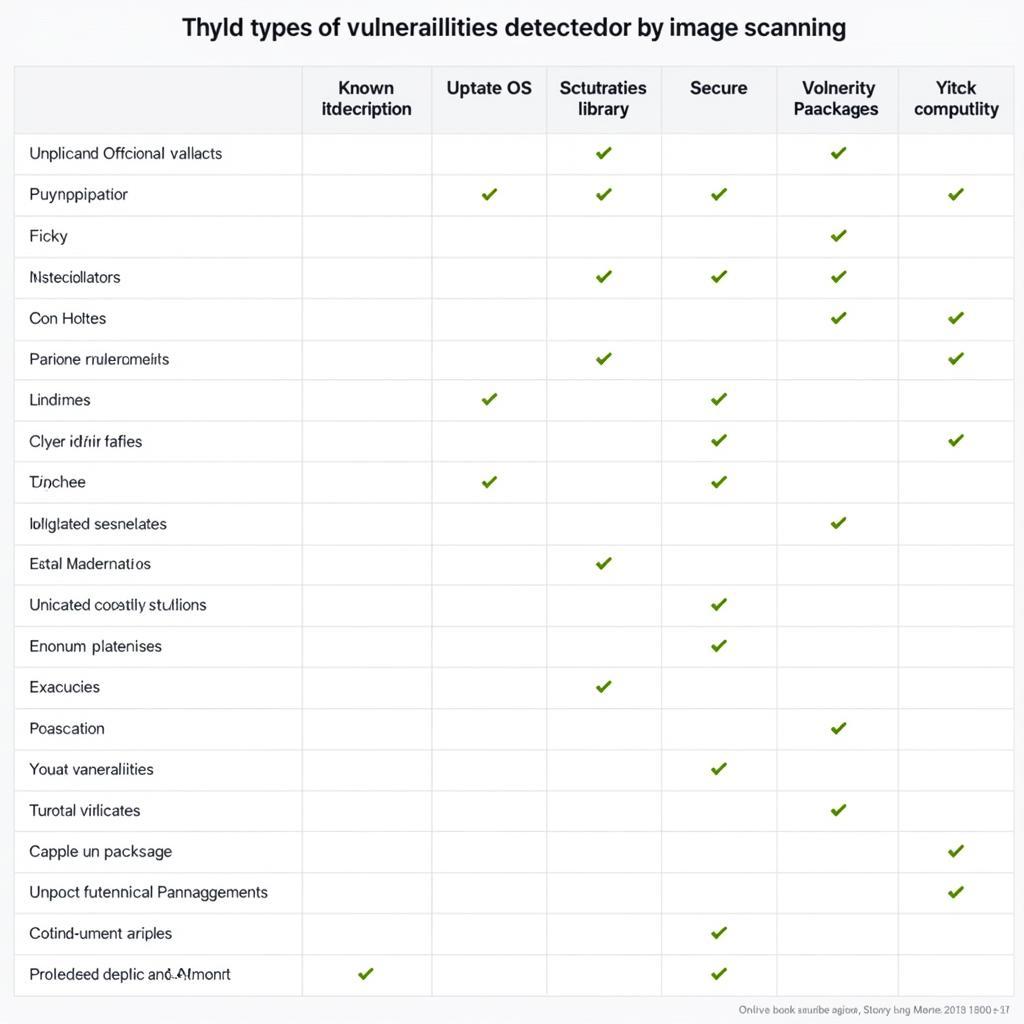A Personal Car Scanner is no longer a luxury but a necessity for any car owner. In today’s increasingly complex vehicles, understanding and addressing potential issues quickly can save you time, money, and unnecessary stress. This guide delves into the world of personal car scanners, equipping you with the knowledge to choose the right one and effectively utilize it.
Why You Need a Personal Car Scanner
A personal car scanner, also known as an OBD2 scanner, gives you direct access to your car’s computer system. Imagine being able to diagnose a check engine light yourself, rather than rushing to a mechanic and potentially facing a hefty bill. This empowers you to take control of your car’s maintenance and understand its health. You can catch minor problems before they escalate into expensive repairs. With some scanners, you can even reset the check engine light after fixing the issue, saving you a trip to the shop. Want to monitor your fuel efficiency or track performance data? A personal car scanner can do that too!
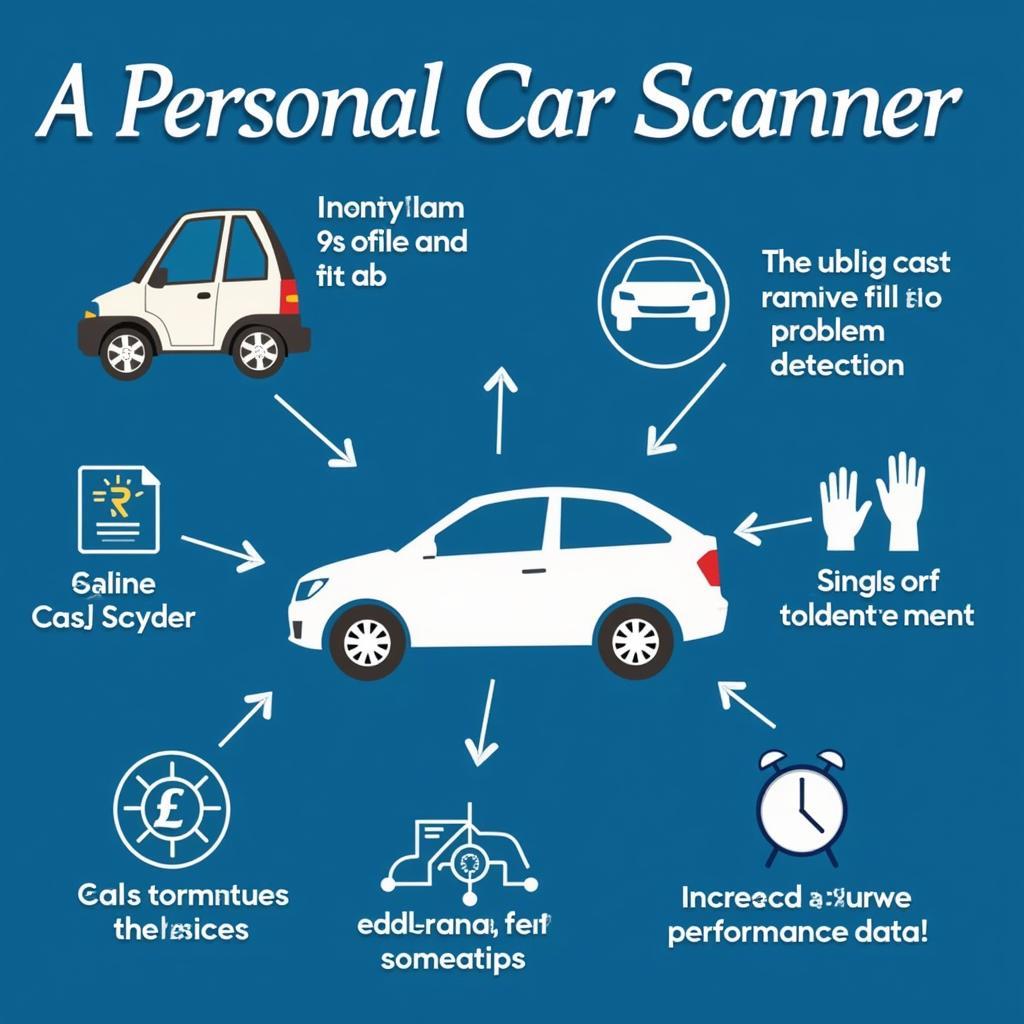 Benefits of using a personal car scanner
Benefits of using a personal car scanner
Choosing the Right Personal Car Scanner: A Buyer’s Guide
Not all personal car scanners are created equal. From simple code readers to advanced diagnostic tools, the options can be overwhelming. Consider your needs and technical skills when making a selection. A basic obd bluetooth car scanner is a great starting point for beginners, providing access to basic diagnostic codes. For more experienced users or those working on specific car makes, an icarsoft volvo/saab specific scan tool might be a better fit.
What Features Should I Look For?
- Code Reading and Clearing: The fundamental function of any personal car scanner.
- Live Data Streaming: View real-time sensor data for deeper insights into your car’s performance.
- Data Logging: Record data over time to identify intermittent problems. An obd scan tool with data logging is beneficial for this purpose.
- Vehicle Compatibility: Ensure the scanner supports your car’s make, model, and year.
Using a Personal Car Scanner: A Step-by-Step Guide
- Locate the OBD2 Port: Usually found under the dashboard on the driver’s side.
- Connect the Scanner: Plug the scanner into the OBD2 port.
- Turn the Ignition On: Don’t start the engine, just turn the key to the “on” position.
- Follow the Scanner’s Instructions: Each scanner has its own interface. Navigate to the “read codes” function.
- Interpret the Codes: Use a reliable online resource to understand what the codes mean.
- Address the Issue: Once you understand the problem, take the necessary steps to fix it.
“A personal car scanner is like having a mechanic in your pocket,” says automotive engineer, David Miller. “It’s an invaluable tool for any car owner.”
Advanced Features and Benefits of Personal Car Scanners
Beyond basic code reading and clearing, some personal car scanners offer advanced features:
- ABS and Airbag System Diagnostics: Access and diagnose issues within these crucial safety systems.
- Transmission System Diagnostics: Monitor transmission performance and identify potential problems.
- Bi-directional Control: Test various components by sending commands to them. This feature is typically found in more professional-grade scanners.
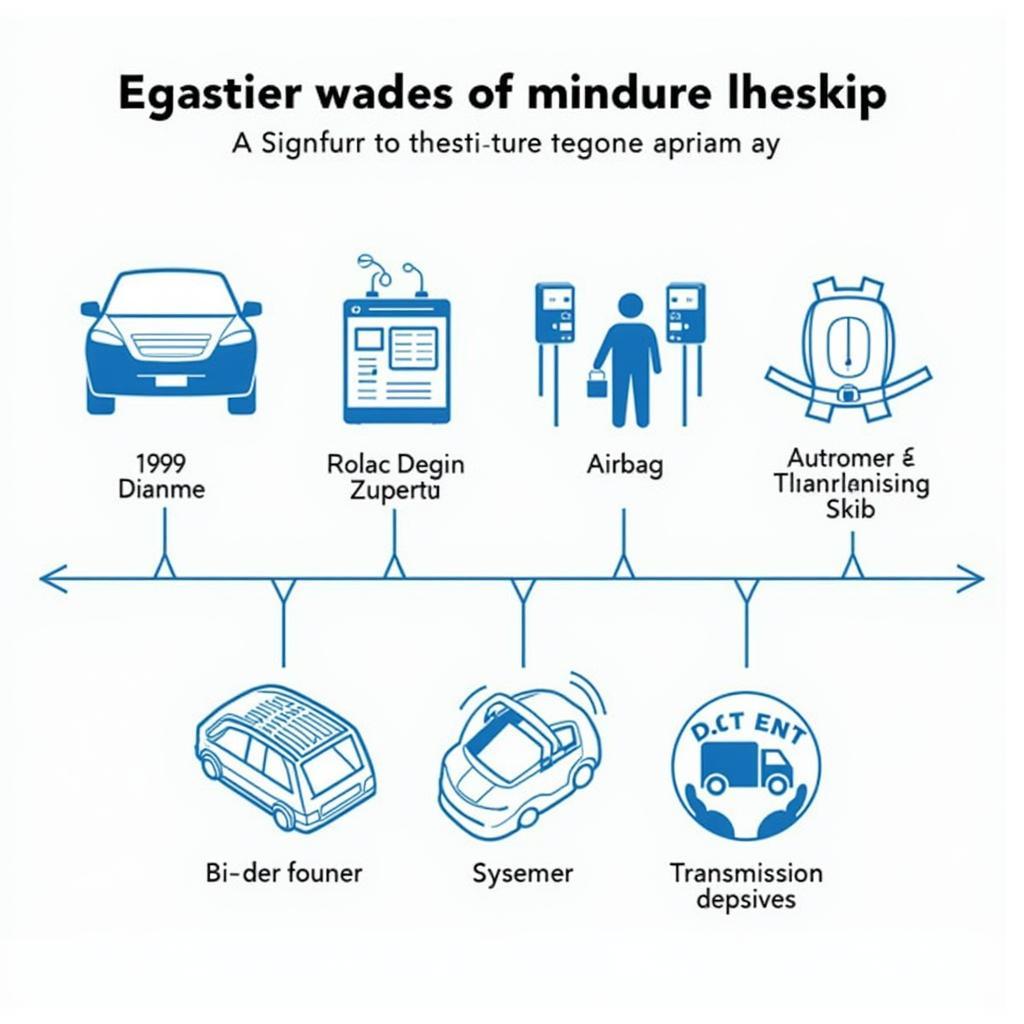 Advanced Functions of a Personal Car Scanner
Advanced Functions of a Personal Car Scanner
Personal Car Scanners: Empowering the Everyday Car Owner
“Being able to diagnose my own car issues has not only saved me money but also given me a deeper understanding of how my car works,” shares Sarah Johnson, a long-time car enthusiast. “It’s incredibly empowering.” A car parts scanner is a valuable tool for those wanting to identify issues. Even a simple skin care face scanner can be unexpectedly helpful in certain scenarios, providing unique insights into skin health that can potentially correlate with overall well-being.
Conclusion
A personal car scanner is a worthwhile investment for any car owner. From diagnosing check engine lights to monitoring performance data, these tools offer a level of control and understanding that was previously only accessible to mechanics. By choosing the right personal car scanner and learning how to use it effectively, you can save time, money, and gain valuable peace of mind. Connect with CARW CarWorkshop for personalized advice and support. Our team of experts is ready to assist you.
Contact Information:
Whatsapp: +1 (641) 206-8880
Email: Carw@carw.store
Office: 4 Villa Wy, Shoshoni, Wyoming, United States
FAQ
- What is the difference between a code reader and a scan tool? Code readers retrieve diagnostic trouble codes, while scan tools offer more advanced functions like live data streaming.
- Can a personal car scanner damage my car? If used correctly, a personal car scanner will not damage your vehicle.
- Will a personal car scanner work on all cars? Most modern cars are equipped with the OBD2 port, but it’s crucial to check compatibility before purchasing.
- What do I do after the scanner gives me a code? Research the code online or consult a mechanic to understand the issue and necessary repairs.
- Are expensive personal car scanners better? Not necessarily. The best scanner depends on your individual needs and technical skills.
- Can I use a personal car scanner to clear airbag codes? Some advanced personal car scanners have this capability, but caution is advised when dealing with safety systems. Consult a professional if you’re unsure.
- Where can I find reliable information about diagnostic trouble codes? Several online resources provide detailed explanations of OBD2 codes.



